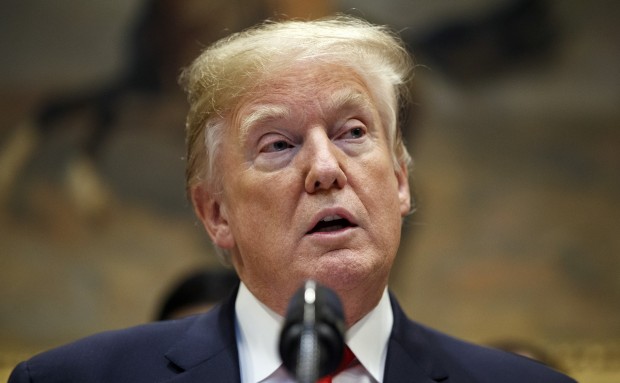Is Donald Trump’s no-show at Asia summits a sign of waning US influence in region?

HONKONG, Nov 14, 2018. Catherine Wong, South China Morning Post. US President Donald Trump’s absence from two high profile Asian summits has raised questions as to America’s right to be a leader in the region, but analysts remain uncertain on whether China is ready to supplant it, reported the South China Morning Post.
“If Asia matters to America, why is your leader President Trump not here?” Singaporean diplomat Tommy Koh asked his American counterparts of the US leader’s decision to skip the East Asian Summit hosted by the Association of Southeast Asian Nations (Asean) in Singapore and the Asia-Pacific Economic Cooperation meetings in Papua New Guinea.
“To Asians, turning up for a meeting is significant,” Koh, a lawyer and ambassador-at-large at Singapore’s Ministry of Foreign Affairs, said at an event on Wednesday in the city state.
Koh said also that many of his counterparts in Southeast Asia were uneasy about the United States’ Indo-Pacific strategy, whose primary aim was to contain China.

“Is it intended to exclude countries in the region which are not democratic?” he asked. “Is the strategic intent of this concept targeted at excluding China from the family? If so we are not comfortable.”
US Donald Trump will not attend the Asia-Pacific Economic Cooperation meetings in Papua New Guinea, which start on Saturday. Photo: AP
While Koh said he was speaking in a personal capacity and that his views did not represent those of the Singaporean government, his concerns resonated throughout the region at a time of uncertainty regarding a shifting world order and struggles between major powers.
“Trump missing [from the two meetings in Asia] is a missed opportunity,” said Huong Le Thu, a senior analyst at the Australian Strategic Policy Institute.
“It looks like he is not committed in the region – something that contradicts the purpose of the Indo-Pacific strategy. To me, I think it looks like Asia policy is left to Pence, Mattis, Pompeo – but does not reach to Trump,” she said.
South China Sea: Asean, Beijing continue to work towards code of conduct
Meanwhile, Beijing is working hard to make headway in the region. Chinese Premier Li Keqiang said at the Singapore summit that China would continue to push for a code of conduct for the South China Sea and hoped to reach consensus within three years.
But its efforts to conclude negotiations on the Regional Comprehensive Economic Partnership – a free-trade deal between Asean and six other Asia-Pacific nations, including China – was postponed until next year, mainly due to India’s reluctance to open up its markets to Beijing – highlighting resistance to a China-led trade order.
And while Trump’s absence from the Asia summits has drawn scrutiny, others have pointed to the continued absence of Chinese President Xi Jinping.
“It is worth noting that the Chinese president has never attended the East Asia Summit,” said Aaron Connelly, a research fellow at the International Institute for Strategic Studies in Singapore.
“Southeast Asian countries have always viewed this as a snub, intended to signal Beijing’s refusal to acquiesce to Asean’s leading role in the regional institutional architecture.
“Under President Xi Jinping, who has consolidated so much power to the detriment of Premier Li Keqiang, it must be particularly disappointing,” he said.
Following a speech at the Hudson Institute last month that was unusually critical of China, Pence’s mission to Asia was likely designed to reassure Washington’s allies and partners of the US’s continued presence in the region and to offer of alternative to Beijing’s global infrastructure drive.
“We seek an Indo-Pacific where every nation … is free to follow its own path and pursue its own interests, where the seas and skies are open to all engaged in peaceful activity, and where sovereign nations grow stronger together,” Pence said at a news conference in Tokyo.
Patrick Murphy, principal deputy assistant secretary for East Asia and Pacific affairs, said at the event in Singapore that Pence’s attendance was an “indication of US continuing commitment to the Indo-Pacific region” with three pillars of cooperation on economy, security and governance.
“There is not a region where any single country should dominate, coerce, bully, or design the rules. The rules are already there,” he said.
This article appeared in the South China Morning Post print edition as: Trump’s absence from two summits raises questions about US role in the region